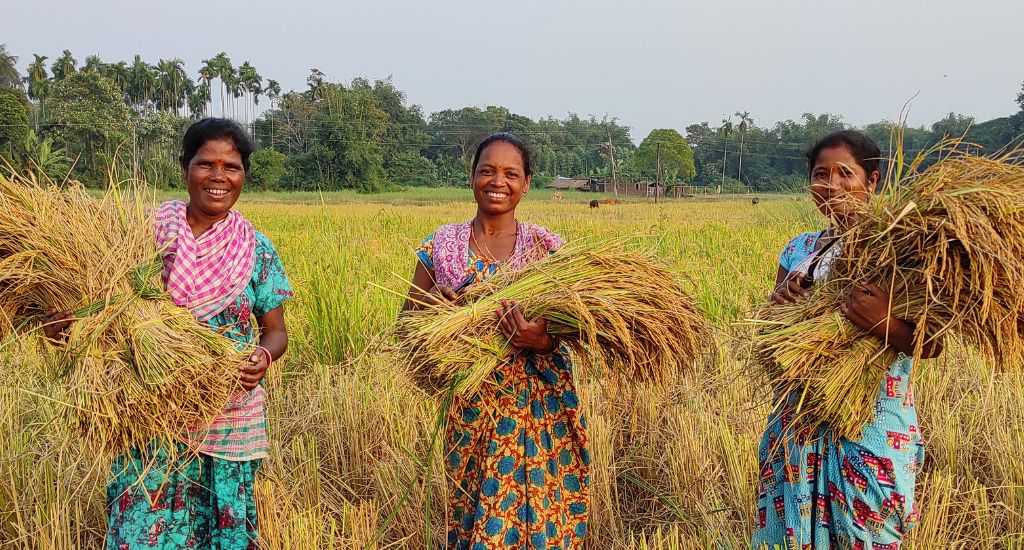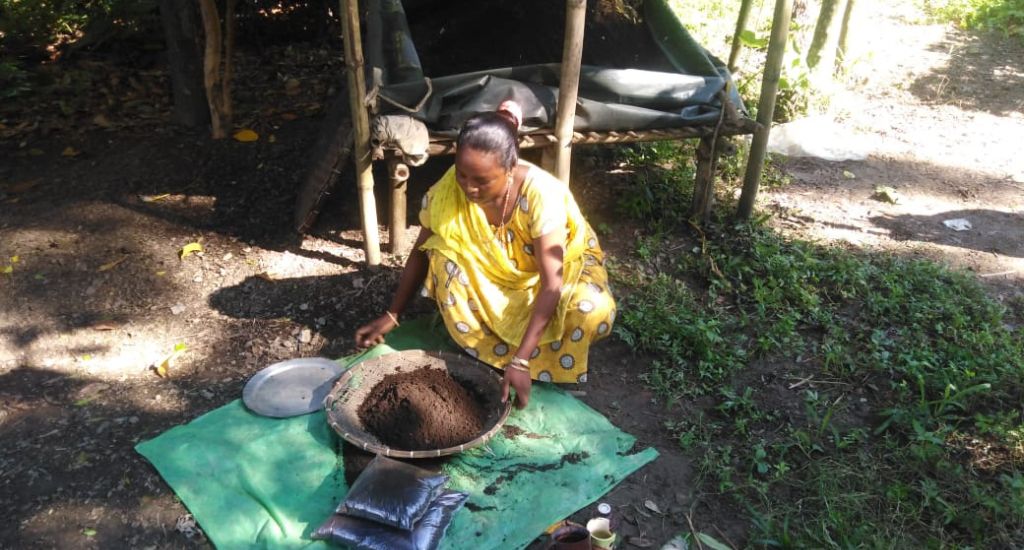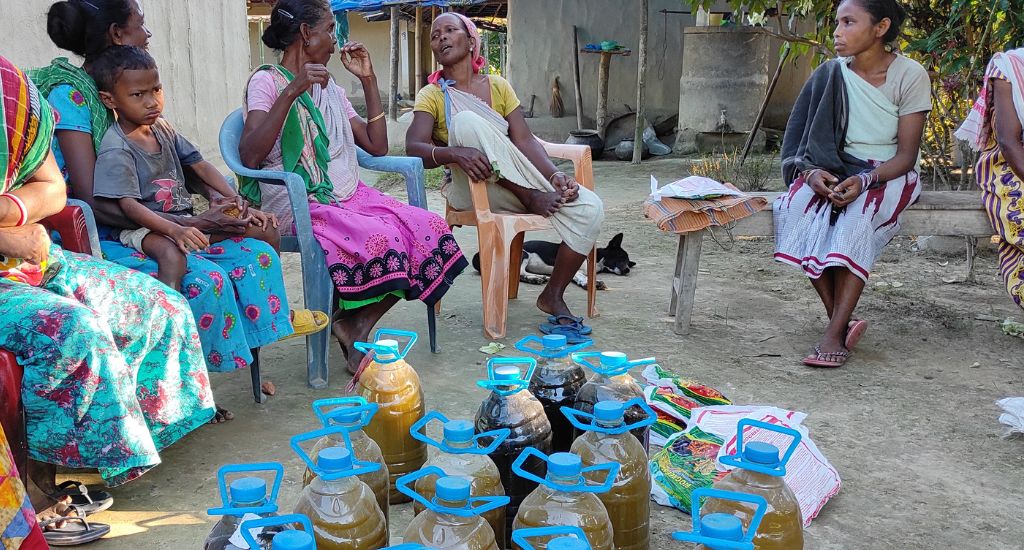
Tribal woman ushers in organic farming in India’s last village
In Madhupur, a village in Assam close to the Bhutan border, an Adivasi woman’s successful switch to organic farming prompts the entire farming community to follow suit.

In Madhupur, a village in Assam close to the Bhutan border, an Adivasi woman’s successful switch to organic farming prompts the entire farming community to follow suit.
Madhupur, in Baksa district of Assam on the foothills of the Bhutanese Himalayas, is a village of contrasts. While bamboo and evergreen forests dot the landscape leading to the village, much of the rain-fed farms remain barren except during monsoons.
Multiple streams of water flow through the nearby mountains, yet there is an extreme scarcity of drinking water in the village. The name of the village translates as ‘land of honey’ but then, the buzzing of bees has long been silenced.
And interestingly, as the rest of the mainstream or conventional agricultural world struggles to find sustainable methods of farming, a tribal woman is leading an organic revolution in India’s last village.
Gulabi Tete is one of the members of a self-help group (SHG) supported by Seven Sisters Development Assistance (SeSTA), a development organisation.
“Five years back, we struggled to produce enough rice to meet our needs for one full year. We have small landholdings and so agriculture-based livelihood was increasingly becoming unviable,” Tete said. “In my entire life, I blindly followed others, particularly men, in agriculture and while working as labourers.”
Also Read | Farming sans chemical pesticides, courtesy solar-powered insect traps
As Tete and the other members of the SHG were inherently skilled in the nuances of organic farming, a gradual transformation began to take place in the area.

“When I learned about organic practices using the root intensification (SRI) method, I tried it out on my own farm. The results were astounding. I got seven quintals of rice per acre, which is twice our normal productivity,” she said.
Tete started making her own vermicompost and jeevamrit manure, in addition to bio-pesticides like neemastra and agniastra. As she gained expertise, other women in the village reached out to her.
“I began to train other Adivasi women on these methods. To my surprise, women and men from other communities in the village also sought support to adopt different organic practices. I have gained immense confidence as I teach others. Imagine an illiterate woman like me teaching village elders about better agriculture methods,” she said.
In mere two seasons, the entire village of Madhupur shifted to organic agriculture. Switching to organic farming has also enabled them to care better for their livestock, which is an integral part of sustainable agriculture.
As word spread, intrigued women farmers from other villages started interacting with Tete at common marketplaces. Some visited her farm. She also makes quality organic inputs available for other farmers by selling packaged vermicompost at reasonable rates.
Also Read | Women adopt organic farming to transform a Karnataka village
Facilitated by SeSTA, Tete began helping women in other villages on sustainable agricultural practices.
Her most fascinating encounter was training women from the Nepali-speaking community in an adjacent village.
“As a child, I used to work as a day labourer in Nepali households along with my parents. But now I train Nepali women in organic practices. I felt so empowered. Today many of them are my friends,” said Tete.

Organic practices in these remote parts have enabled women farmers to not just learn new skills but have enabled them to play a key part in the input and production cycle. The SHG in Madhupur is now involved in making organic pesticides that serve farmers in several villages.
“In the past, we were dependent on unknown chemicals for our crops. Today we produce manure and bio-pesticides for the entire area,” Tete said.
She believes that switching to organic farming is the only way to bring self-sustenance and save the soil from harsh chemicals.
“This is the most important resource we have. Moreover, it is not just about our soil, it’s about protecting our forests and producing healthy food for our children,” she said.
Also Read | Alcohol addiction gives way to organic farming
Today Tete is a certified organic farmer. The agriculture department procures the paddy she grows as part of a buy-back scheme. Even teachers from nearby schools come to her to buy vermicompost. The increased income from agriculture and the sale of organic input products has enabled Tete to start a tea stall. The tea stall is also a magnet for community members to gather and discuss organic farming.
With a tinge of pride she said, “I am an illiterate woman, but now my daughters study in an English medium school. I want to give them the same opportunities to learn as I have got in the last three years.”
In future, Tete wants to set up a producer group that will support women across Baksa to access quality inputs.
These tribal women buzz with self-assurance as catalysts of this organic revolution. The buzzing of bees has largely vanished in the region due to deforestation, hive destruction and indiscriminate use of pesticides. But heralding change, these women have taken the first step to bring the bees back to their land of honey, by setting up several hives.
As Tete and her group march forward, Madhupur will perhaps live up to its name.
Also Read | How an organic experiment went wrong
The lead image at the top shows following Gulabi Tete’s footsteps, the women farmers of Madhupur have switched to organic farming (Photo by Cheanchane Marak and Preetisha Singha)
Cheanchane Marak and Preetisha Singha are executives with Seven Sisters Development Assistance Assam.